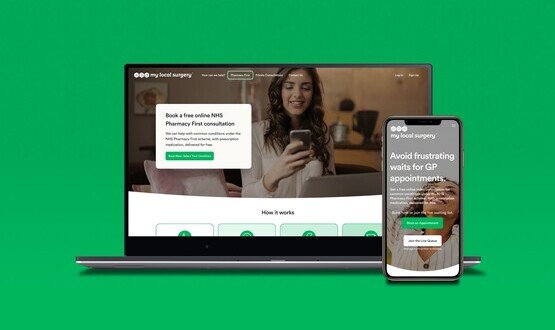Scottish GPs to start issuing barcoded scrips
- 27 February 2007
Scotland’s electronic transmission of prescriptions project is to get underway in April when GP practices will begin to produce barcoded prescriptions for almost all prescribing.
By the end of the next financial year Scotland aims to have fully implemented ETP via its eAcute Medication Service (eAMS) and implemented repeat dispensing through its eChronic Medication Service (eCMS).
eAMS functionality for GP practices will be rolled out over six to eight weeks from April while pharmacy functionality is due to be tested from July and rolled out from September.
Alison Strath, principal pharmaceutical officer for the Scottish Executive Health Department (SEHD) said that from September GP systems will be able to electronically transfer prescription data for both acute and repeat prescriptions to pharmacy systems.
The eAMS functionality will mean practices will produce barcoded prescriptions with an associated electronic message for almost all acute and chronic prescriptions written on GP10s. The message will be sent electronically to the ePharmacy Message Store (ePMS) and when the patient presents a barcoded prescription the pharmacists will be able to use the barcode to retrieve the electronic message directly into their pharmacy system.
Guidance issued by the SEHD http://www.sehd.scot.nhs.uk/pca/PCA2007(M)02etc.pdf states that retrieving the prescription details electronically will support the pharmacy in item selection and appropriate pre-population of information in the dispensing screen and subsequent label, reducing keying time and minimising the chances of interpretation errors.
Once the prescription has been dispensed, the pharmacy system will generate an electronic message which will be sent back to the ePMS. The GP10 paper forms will then submitted to the Practitioner Services Division (PSD) as usual but the PSD will be able to scan the bar codes to retrieve the electronic data for remuneration, reimbursement and data collection. This forms the basis of the ePay element of the programme.
Prescriptions will also contain UK dictionary of medicines and devices (dm+d) codes for each item prescribed and the guidance says the dm+d codes will allow the different stakeholder systems involved to have a common, standardised approach to using the prescription data, which will make the processing of the information, through ePay, more efficient.
As in release one in England, the Scottish ETP system means patients will still receive a paper prescription, printed with a barcode, with digital signatures planned for a later stage of ETP.
Strath told EHI Primary Care: “There are legislative requirements in terms of introducing advanced electronic signatures and issues around patients signing the back of the form so there is a bit of work to be done before we can introduce that.”
Any prescribing not using GP10 prescription forms, for example nurse prescribing, is currently out of scope for eAMS and will remain unchanged with a printed or handwritten form dispensed and processed manually. It will be included in the ePharmacy programme as an enhancement at a later stage.
Connecting for Health (CfH) is still in the process of ensuring all pharmacies and practices in England are technically and operationally live for release one of its Electronic Prescription Service. Figures issued at the end of January showed that around one in five practices (1569) were operationally live as were at least 1500 pharmacies.
A CfH bulletin said the business processes for release two of EPS, which will enable digital signatures on prescription and nomination of pharmacies, were nearing completion and would form the basis of a series of guidance notes. CfH’s target is for EPS to be fully implemented by the end of 2007.
Scotland’s eCMS service, which it hopes to start early in 2008, will introduce repeat dispensing and means practices may only need to issue one prescription for up to six or 12 months.




